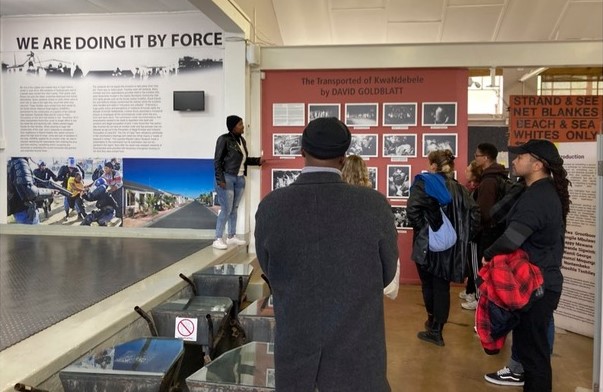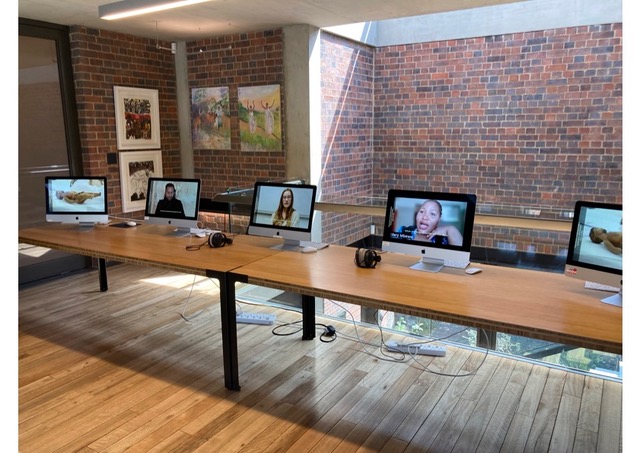Elephants in the Room: Autumn/Spring School on Post/Colonial Memory Politics
Parts of the DFG Research Training Group Contradiction Studies and students of the MA Transcultural Studies participated in the Autumn/Spring School Elephants in the Room: Situating Post/Colonial Histories and Imaginaries in Cape Town and Johannesburg from September 7-22, 2023.
‘The elephant in the room’ is a common metaphor around the world, symbolizing an uncomfortable truth that is too ubiquitous to ignore but too difficult to address. Elephants can inspire awe and fear, and have historically inspired covetousness in those who sought to rule. As guardians of collective memory, they also represent caring, stability, and resilient communities. This year’s Autumn/Spring School addressed memory politics as we followed the many layers of the elephant metaphor and explored how dominant and singularizing narratives can be decentred by situating them within specific time frames and assemblages of an interconnected post/neo-colonial world.

The study tour took place in cooperation with the Research Training Group of the German Research Foundation (DFG) Connect – Exclude: Cultural Practices Beyond Globalization (University of Cologne, Academy of Media Arts and Cologne University of Applied Sciences) and the African Programme in Museum and Heritage Studies at WCU, University of Western Cape. The organizers are Martin Zillinger, Anna Brus, Ciraj Rassool, Fabian Lüke, Carla Tiefenbacher, Amelie Greefe, Katrin Antweiler, and Michi Knecht. Using the example of different sites of memory in Cape Town and Johannesburg and the contested histories associated with them, we discussed the potentials of different curatorial and ethnographic research practices. How can new relationships between institutionalized cultures of memory and the ‘communities of struggle’ or ‘communities by implication’ (Erica Lehrer) involved be imagined and made visible? Museums as sites of memory produce narratives and imaginaries through specific material and discursive practices, each situated in the contradictions of post/colonial boundary drawing. In South Africa, selective openings to social collectives and desires are also still resonating with the racialized and violent politics of the apartheid regime. The Autumn/Spring School brought together researchers and students from diverse political, geographic, and social contexts. We aim at “doing difference in good faith together” (Helen Verran). Learning, sharing, arguing, working to decentre, irritating ingrained perceptions as well as realities, and opening up new imaginaries, spaces of possibility for museum and research practices.

The study visit builds on the curatorial project of the GRK Connect – Exclude The Entire Story Starts Where – Connections and Exclusions of Translocal Positionings and a cooperation Decentering the Museum between the universities in Cape Town, Bremen and Cologne that has been in place since 2020. After two joint online seminars “Decentering the Museum: Resist! – Repair! – Restitute! – Reimagine!”, MA students and PhD students from the three universities came together in Germany in April 2022 for a study tour of anthropological museums and mission archives. Their intensive exchange with museum staff and curators and the critical examination of the exhibition practices of the visited institutions was accompanied by the filmmakers Britta von der Behrens and Sebastian Eschenbach. The resulting video installation created in cooperation with students from Bremen, Cologne, and Cape Town re|despair – Painful Encounters in German Museums was shown in May/June 2023 as part of the European Conference on African Studies at the Rautenstrauch-Joest-Museum in Cologne and at the Johannesburg Holocaust & Genocide Centre during the Spring-/Autumn-School. From the MA Transcultural Studies Jana Schäfer & Teresa Ellinger participated for the re|despair project.